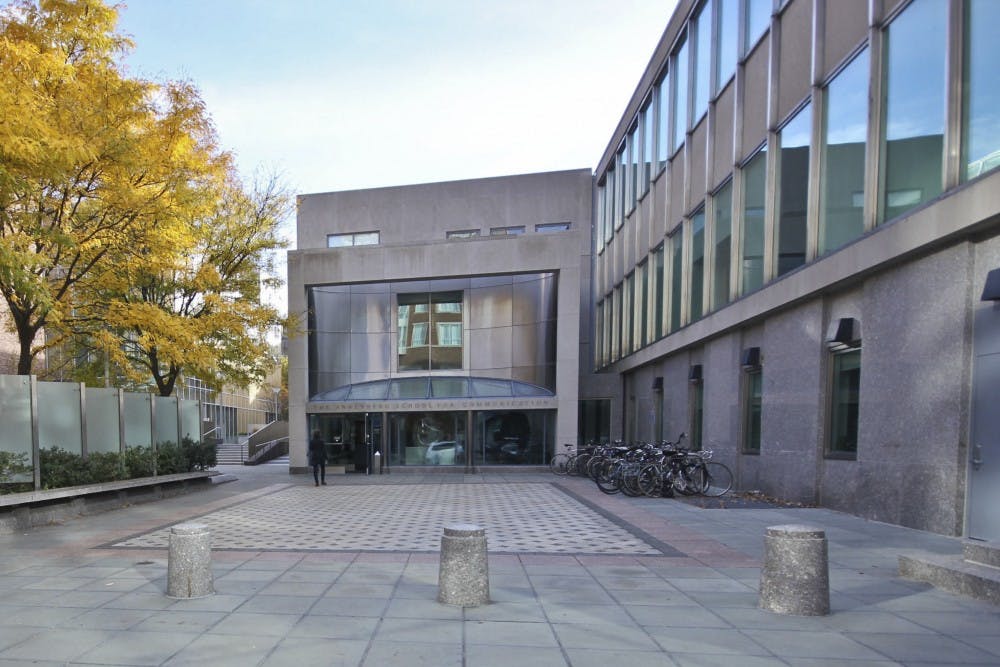“Enemy of the People.” “Fake news.” “Very dishonest people.”
These are just a few of the phrases President Donald Trump has used to describe the press since taking office, contributing to what many scholars say is an unprecedented media climate in America. But in an era with increased scrutiny on the industry, many professors at Penn say they have adapted course structures and started awareness initiatives to reflect the political climate.
Professors at Penn's Annenberg School for Communication have been at the forefront of this initiative. Annenberg professor Barbie Zelizer said increased threats to journalism, not only in the United States, but abroad, compelled her in April to establish the Center for Media at Risk, of which she now serves as director.
"The point at which Trump came into power was an eye-opening moment for many of us," Zelizer said. "The center can deliver answers, formulate new solutions, bring exemplars from history and understandings of different media regimes across the world back into the conversation to help us understand what we got wrong."
Zelizer said the goal of the center is to facilitate the sharing of information from journalists worldwide who have experience working under regimes that threaten the free press.
Through events such as a symposium featuring panelists from the Philippines to Azerbaijan, the center has brought a focus to how media intimidation takes shape and how figures can resist such efforts. Zelizer stressed the need for collaboration between scholars and media practitioners to share information and fully grasp together the threats facing the free press.
Zelizer added the Western world was far less prepared for an attack on media and called for a compilation of how intimidation is felt and how it can be resisted.
"In the United States, we have been cocooned in our own sense of exceptionalism, but right now, the rest of the world is far more knowledgable about this kind of regime and what it does to the public than we are," Zelizer said. "We rely on the media for so much, and we’ve been taking that for granted for far too long."
RELATED:
Was Trump really a top student at Wharton? His classmates say not so much
Penn students head to D.C. to advocate against Trump's proposed cuts to a food stamp program
These sentiments were echoed by Cherian George, professor at Hong Kong Baptist University and a visiting scholar at the Center for Media at Risk.
"[Trump's] rhetoric has been enthusiastically embraced by authoritarian leaders worldwide, most notably his rhetoric on fake news, which has been picked up quite gleefully by demagogues around the world," George said.
Trump is simply learning from dictators worldwide, Zelizer said, employing tried-and-tested techniques to infringe upon media freedom.
"[Trump] knew how to pull it all together and make it work," Zelizer said. "It’s not that anything he has done is new or inventive, it’s boringly familiar — it’s just that we just didn’t expect it here."
The press is also facing urgent financial threats, Victor Pickard, an Annenberg professor who specializes in the political economy of media, said.
“Before Trump took office, we had been seeing news organizations rapidly downsizing their workforces, seeing dramatic losses of journalism jobs and of revenue generated by commercial media outlets,” Pickard said. “Certainly today there is no longer a commercial model that supports the level of journalism that a democracy requires.”
Pickard said Trump’s election has presented opportunities to further examine issues he addresses in his political economy class, such as the proper role of the free press in society, who controls media institutions, and what economic threats the press faces.
Experts agreed that now is a pressing time for journalism in America, but some held out hope that the industry could overcome the rough period.
George said he's confident the tradition of free press in the United States will persevere because of America's "ability to self correct."
"The system is designed quite deliberately to run around individual bad leaders," George said. "It is still a strong system, and I would hope its underlying constitutional values can outlast this attack from the very top."









